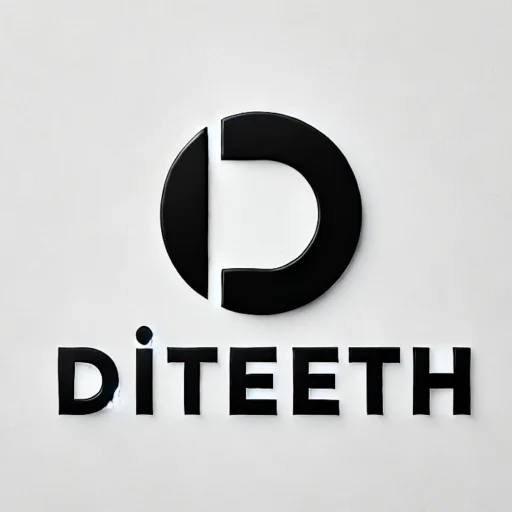
Discover how decentralized search engines are revolutionizing rankings by removing corporate bias, enhancing transparency, and prioritizing user privacy.
Introduction
Search engine rankings have long been dominated by centralized giants like Google and Bing, which control algorithms, advertising models, and content visibility. However, the rise of decentralized search engines offers a new way forward, shifting power away from a few corporations to a more transparent, user-driven model. But how exactly will this impact search rankings?
Let’s explore how blockchain-based search engines and decentralized indexing could disrupt the SEO landscape.
What Are Decentralized Search Engines?
Decentralized search engines operate on peer-to-peer networks rather than being controlled by a single entity. Instead of relying on proprietary algorithms and ad-based ranking, these platforms often use blockchain technology, distributed indexing, and community-driven ranking mechanisms.
Some examples include:
- Presearch – A blockchain-powered search engine rewarding users for searching.
- Brave Search – Focuses on privacy and independent indexing.
- YaCy – A peer-to-peer search engine where users contribute to indexing.
Unlike Google, which stores vast amounts of user data, decentralized alternatives prioritize privacy and algorithm transparency while still delivering relevant search results.
How Decentralized Search Engines Could Change Ranking
1. Transparency in Ranking Algorithms
One of the biggest criticisms of Google’s ranking system is its lack of transparency. Algorithm updates like Google’s Helpful Content Update can drastically impact rankings overnight, often leaving website owners confused.
In contrast, decentralized search engines typically use open-source algorithms that are visible to the public. This allows:
- SEO professionals to understand ranking factors more clearly.
- Less reliance on paid advertising to boost visibility.
- Greater trust in search results, as manipulation is harder.
For businesses, this means SEO strategies will shift towards quality content and engagement metrics, rather than just satisfying an algorithm that changes unpredictably.
2. A Shift Away from Paid Rankings
Currently, Google’s search results are influenced by Google Ads, meaning businesses can pay for higher visibility. This model prioritizes large corporations over small businesses, making organic ranking more competitive.
With decentralized search, ads won’t dictate rankings. Instead, ranking could be based on factors like:
- Community trust and upvotes.
- Blockchain verification of content authenticity.
- Engagement metrics (time on page, shares, discussions).
This shift would make it harder for big brands to dominate simply by outspending competitors, leveling the playing field for small businesses and independent creators.
3. Enhanced Privacy & User Control
Google tracks user data extensively to personalize results, while decentralized search engines aim for privacy-first browsing. The impact on ranking includes:
- Less influence from past searches, making results more neutral.
- More user-driven ranking factors, rather than AI-determined personalization.
- Opt-in search history tracking, where users choose how much data they share.
For SEO professionals, this means rankings will rely more on on-page optimization and content trustworthiness, rather than personalized search histories influencing click-through rates.
4. Decentralized Trust & Reputation-Based Ranking
Instead of relying on backlinks as a major ranking factor (like Google’s PageRank), decentralized search engines could implement:
- Blockchain-based reputation scores for websites.
- User-powered votes and reviews.
- Content authenticity verification via smart contracts.
This could lead to a new SEO model where domain authority is built on verified trust, rather than aggressive backlink-building tactics.
For content marketers, this means building credibility and engagement will become more important than ever.
5. Less Corporate & Government Influence
Google and other centralized search engines have been criticized for censorship and bias, whether due to corporate partnerships or government regulations.
A decentralized approach would make it harder to manipulate rankings for political or corporate interests. Instead, rankings could be based on:
- Decentralized voting systems where users influence visibility.
- Blockchain verification to prevent content suppression.
- Distributed indexing across multiple nodes, reducing single-point control.
This could benefit alternative news sources, independent bloggers, and niche industries, ensuring a more diverse and fair search landscape.
Challenges of Decentralized Search Engines
While the benefits are clear, decentralized search engines still face challenges:
✅ Lower adoption rates – Google dominates 90%+ of search traffic, making transition slow.
✅ Slower indexing speeds – Without centralized servers, crawling and indexing may lag.
✅ Limited monetization options – Without ads, funding and scalability are issues.
✅ User-friendliness – Many decentralized platforms lack the refined UX of Google.
For decentralized search engines to succeed, they must balance transparency, scalability, and user experience while ensuring credible, spam-free results.
The Future of SEO in a Decentralized World
If decentralized search engines gain widespread adoption, SEO strategies will need to evolve. Some potential changes include:
🚀 Increased focus on community trust signals rather than traditional SEO factors.
🚀 User engagement playing a bigger role in ranking.
🚀 More emphasis on content verification via blockchain.
🚀 A reduced reliance on backlinks for authority.
While centralized search isn’t going away anytime soon, blockchain-powered search engines could redefine the way businesses and creators approach digital marketing.
Final Thoughts: Should SEO Professionals Care About Decentralized Search Engines?
Yes! Even if decentralized search engines remain niche, they set a precedent for greater transparency, privacy, and fairness in rankings. Businesses and content creators should prepare for new ranking models, ensuring they adapt to a future where user trust and engagement matter more than corporate ad budgets.
SEO Optimized Keywords Used:
- Decentralized search engines
- Blockchain-based search engines
- How decentralized search engines could change ranking
- Decentralized SEO strategies
- Google vs decentralized search
- User-controlled search ranking
- Privacy-first search engines
